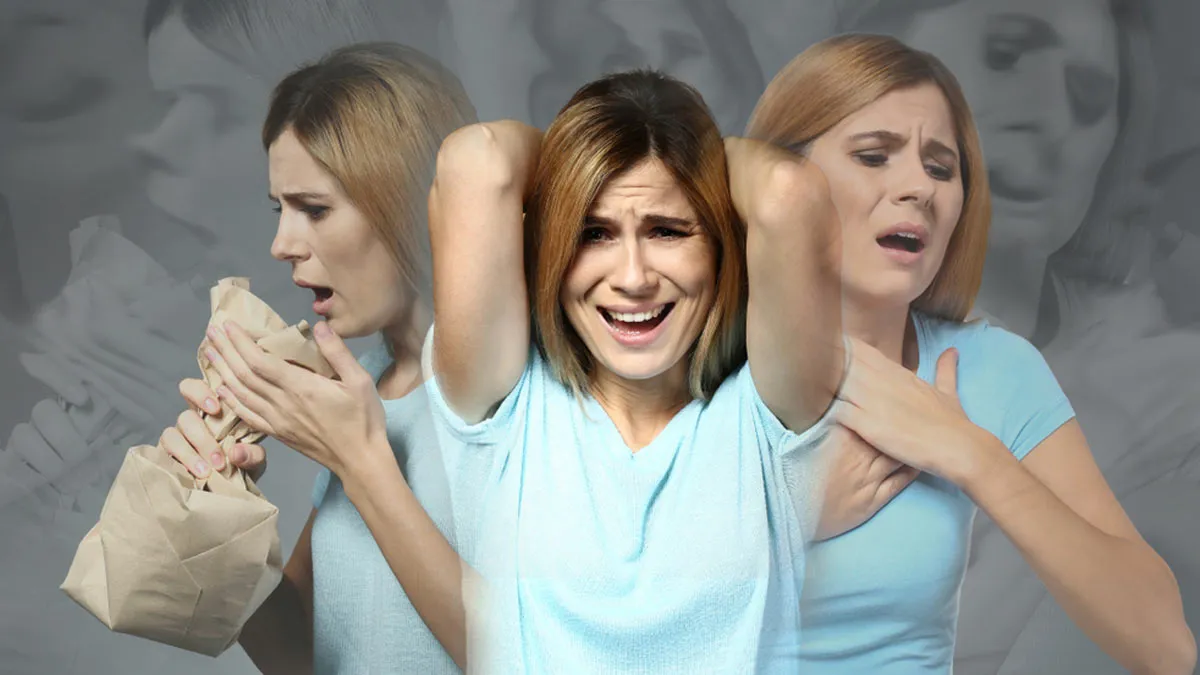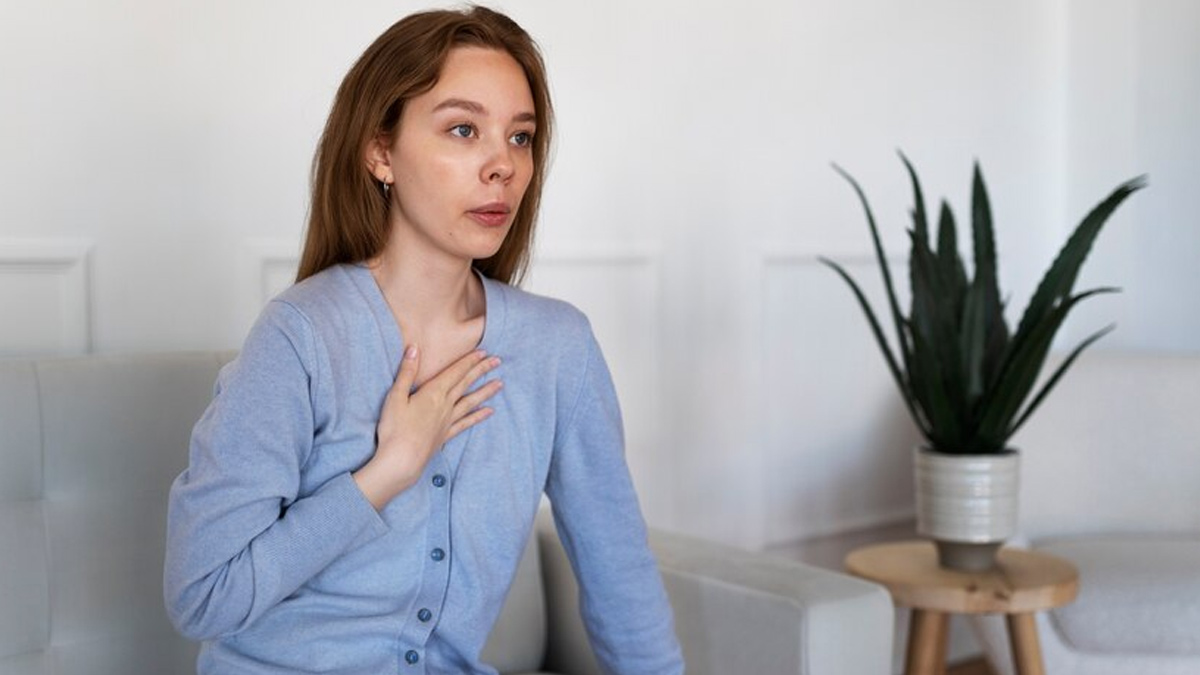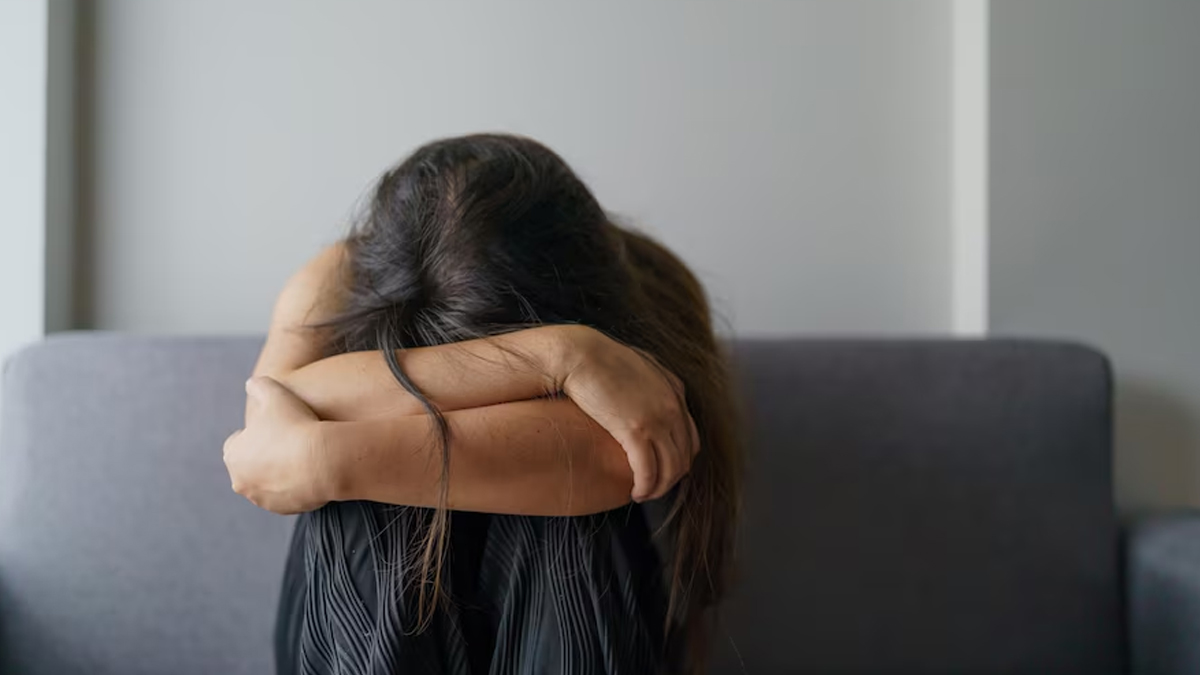
Anxiety is a normal emotional reaction to stress, but when it reaches overwhelming levels, it can cause physical symptoms that feel threatening, and one among them is hyperventilation. Hyperventilation is when ine feels rapid or laboured breathing, a sense of tightness in the chest, and dizziness, usually convincing people that they're having some kind of serious medical emergency.
Table of Content:-
CHECK YOUR
MENTAL HEALTH

But how exactly are hyperventilation and anxiety related? We asked the same to our exoert, Dr Vikram Vora, Medical Director and Chief Health Officer (Indian Subcontinent), International SOS, and here is what he explained to us.
What is Hyperventilation?
Hyperventilation or over-breathing, is when one over-breathes or takes quick breaths, leading to a decrease in carbon dioxide levels in the blood. "When carbon dioxide levels go down, it changes the body's pH level, causing symptoms of light-headedness, tingling of the fingers, breathlessness, or even fainting. It's more or less the body reacting to something it perceives as a threat or a massive stress,” said Dr Vora
Simply put, the body begins to breathe more rapidly due to anxiety or panic, although it is not physiologically in need of more oxygen. This maldistribution can lead to the experience of suffocation and panic in a cycle of their own, the more panicked or anxious you become, the more you hyperventilate, and worse the symptoms are.
Also Read: What To Apply On Face For Open Pores, Dermat Shares

Link Between Anxiety and Hyperventilation
As explained by Dr Vora, "Anxiety is one of the most frequent causes of hyperventilation. The fight or flight response of the body senses threat, leading to quicker breathing to deliver more oxygen to muscles and organs." But if the threat is not physical but psychological, the faster breathing is useless and instead exacerbates symptoms of anxiety.
The nervous system is also at the centre here. During periods of anxiety, the sympathetic nervous system gets over-excited, speeding up breathing, heart rate, and alertness. "While this response served to protect us, in contemporary life, it is frequently triggered by mundane stressors—such as pressure at work or anxiety about social situations—instead of real danger," Dr Vora explained.
Symptoms of Anxiety Hyperventilation
Anxiety hyperventilation can be very terrifying. Some common symptoms are:
- Shortness of breath or not being able to breathe in deeply
- Pain or tightness in chest
- Dizziness or faintness
- Numbness or tingling sensation in hands and feet
- Palpitations or a rapid heart rate
- Being detached or unreal (a condition called derealisation)
"Sensations like these can imitate other medical conditions including heart attacks or asthma, which can cause people to become even more anxious, and so the cycle gets worse," said Dr Vora.
Also Read: Satish Shah, Veteran Actor and ‘Sarabhai vs Sarabhai’ Legend, Dies at 74 Due To Kidney Failure

How To Control Hyperventilation
Dr Vora noted that hyperventilation caused by anxiety is not risky, and there are good methods to control it. He suggested cultivating controlled breathing and mindfulness skills to restore normal breathing patterns. These include:
- Practice slow breathing: Attempt to breathe in slowly through your nose for four seconds, hold your breath for two seconds, and breathe out slowly through your mouth for six seconds.
- Grounding techniques: Pay attention to your environment, see what you can see, hear what you can hear, feel what you can feel to shift attention away from worried thoughts.
- Relaxation exercises: Yoga, meditation, or progressive muscle relaxation can stabilize your nervous system.
- Professional assistance: If the spells occur repeatedly or are severe, seek the help of a psychologist or psychiatrist for therapy or cognitive behavioural therapy.
When to Seek Medical Attention
Although anxiety-induced hyperventilation is most often harmless, repeated or inexplicable attacks should be examined by a doctor. "If you find yourself having extremely severe chest pain, loss of consciousness, or chronic breathlessness, go immediately to hospital to exclude underlying conditions," says Dr Vora.
Bottomline
Anxiety can cause hyperventilation, but through awareness, breathing control, and relaxation methods, you can successfully regulate it and keep it from controlling your well-being.
Also watch this video
FAQ
1. How do I know if my hyperventilation is caused by anxiety?
If your hyperventilating comes on with stressful situations, panic attacks, or severe emotional distress, and goes away as you relax, it's probably associated with anxiety.2. Can hyperventilation hurt your body?
Although it can create uncomfortable symptoms, hyperventilation caused by anxiety itself is harmless. But recurring episodes can lead to fatigue and stress if left unchecked.3. How do I prevent hyperventilating when I'm anxious?
Practice slow, deep breathing through your nose, stay mindful, and attempt relaxation methods such as meditation or yoga. If symptoms continue, consult a healthcare expert.
Read Next
Viral KBC Kid And Six Pocket Syndrome: Psychologists Explain The Impact On A Child's Overall Growth
How we keep this article up to date:
We work with experts and keep a close eye on the latest in health and wellness. Whenever there is a new research or helpful information, we update our articles with accurate and useful advice.
Current Version
Oct 26, 2025 08:50 IST
Modified By : Tanya SrivastavaOct 26, 2025 08:50 IST
Published By : Tanya Srivastava